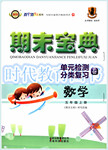题目内容
C
He was the baby with no name. Found and taken from the north Atlantic 6 days after the sinking of the Titanic in 1912, his tiny body so moved the salvage(救援)workers that they called him “our baby. ” In their home port of Halifax, Nova Scotia, people collected money for a headstone in front of the baby's grave(墓), carved with the words: “To the memory of an unknown child. ” He has rested there ever since.
But history has a way of uncovering its secrets. On Nov. 5, this year, three members of a family from Finland arrived at Halifax and laid fresh flowers at the grave. “This is our baby,” says Magda Schleifer, 68, a banker. She grew up hearing stories about a great-aunt named Maria Panula, 42, who had sailed on the Titanic for America to be reunited with her husband. According to the information Mrs. Schleifer had gathered, Panula gave up her seat on a lifeboat to search for her five children -- including a 13-month-old boy named Eino from whom she had become separated during the final minutes of the crossing. "We thought they were all lost in the sea," says Schleifer.
Now, using teeth and bone pieces taken from the baby's grave, scientists have compared the
DNA from the Unknown Child with those collected from members of five families who lost relatives on the Titanic and never recovered the bodies. The result of the test points only to one possible person: young Eino. Now, the family sees: no need for a new grave. "He belongs to the people of Halifax," says Schleifer. "They've taken care of him for 90 years. "
Adapted from People, November 25, 2002
44. The baby travelled on the Titanic with his___________.
A. mother B. parents C. aunt D. relatives
45. What is probably the boy's last name?
A. Schleiferi B. Eino. C. Magda. D. Panula.
46. Some members of the family went to Halifax and put flowers at the child's grave on Nov. 5__.
A. 1912 B. 1954 C. 2002 D. 2004
47. This text is mainly about how______________.
A. the unknown baby's body was taken from the north Atlantic
B. the unknown baby was buried in Halifax, Nova Scotia
C. people found out who the unknown baby was
D. people took care of the unknown baby for 90 years
44—47 ADCC

 期末宝典单元检测分类复习卷系列答案
期末宝典单元检测分类复习卷系列答案